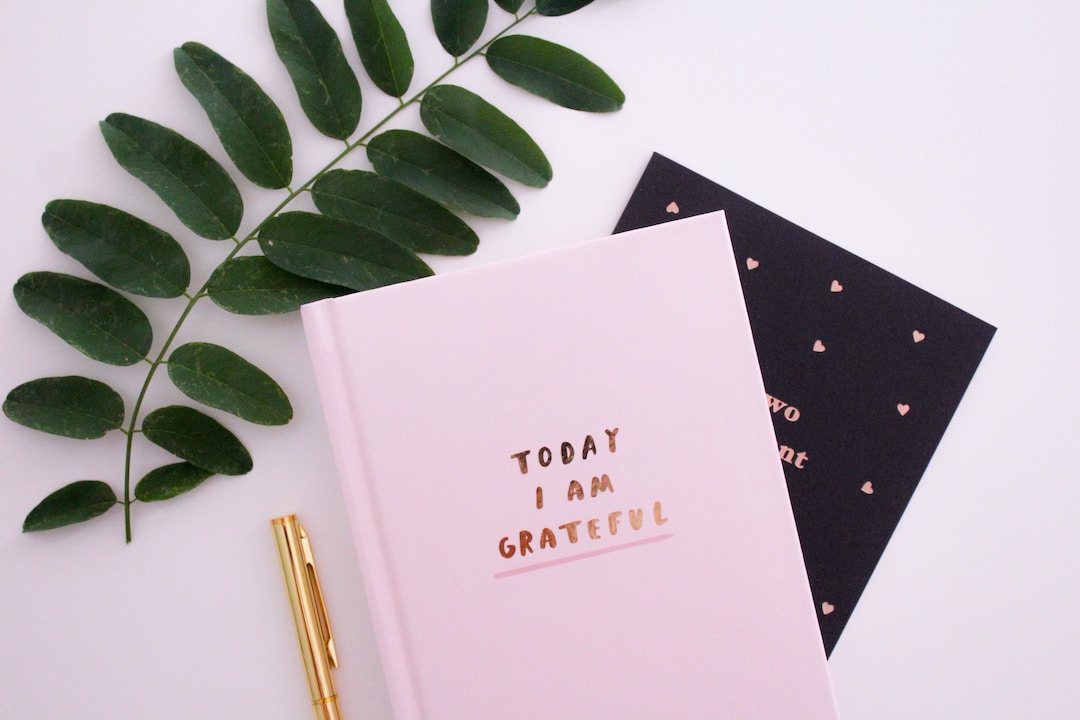What does your life look like right now?
Introduction
In today’s fast-paced and chaotic world, finding moments of self-reflection and personal growth can be challenging. Yet the simple act of journaling is a powerful tool many people use for navigating their thoughts, feelings and desires. As a life coach, I encourage my clients to keep up this practice of self-awareness and self-knowledge. In this comprehensive guide, we will explore the art of journaling, its many benefits and how beginners can embark on this transformative journey.
What you will find in this article:
- What is journaling
- Benefits of journaling
- How to start journaling as a beginner
- What to include in your journal
- 30 Journaling prompt ideas for beginners
- What is the best time to journal
- What is the best environment for journaling
- How to create the best journaling environment
- How long should you keep the habit of journaling
- Different journaling tools
- Curiosities about journaling
- Conclusion: Harness the power of journaling
1. What is Journaling?
Journaling is the art of putting thoughts, feelings, and experiences into written words. It is a form of self-expression that dates back centuries and has been embraced by writers, artists, philosophers, and individuals seeking personal growth. By putting pen to paper, journaling allows us to gain insights into our own minds, emotions, and motivations. It’s like having a conversation with yourself, a safe space to be vulnerable and honest.
2. Benefits of Journaling
Journaling offers a wealth of benefits for mental, emotional and even physical well-being. Here are some of the more notable benefits:
A Journey of Self-Discovery
Journaling opens the doors to self-discovery. It helps people explore their core beliefs, values and aspirations. Through regular journaling, people gain a deeper understanding of their inner selves and uncover hidden patterns and behaviours.
Stress reduction and emotional release
Writing down our thoughts and feelings provides an outlet for stress and anxiety. Journaling acts as a cathartic process, allowing us to release pent-up emotions and find relief from overwhelming feelings.
Improved clarity and problem solving
Putting our thoughts on paper helps to organise them and provide clarity. Journaling can help with problem solving by providing a fresh perspective on challenges and allowing us to look at situations from different angles.
Enhanced creativity
Journaling stimulates creativity by encouraging the free flow of ideas and thoughts. It serves as a canvas for creative expression, stimulating imagination and innovation.
Increased gratitude and positivity
Writing about moments of gratitude and positive experiences cultivates a sense of appreciation for life’s blessings. Daily journaling highlights the beauty in the ordinary and promotes a positive outlook.
Goal achievement and tracking
Journaling is an effective way to track progress towards personal and professional goals. It serves as a roadmap, enabling individuals to stay focused on their aspirations.

3. How to start journaling as a beginner
Starting a journaling journey as a beginner may seem intimidating, but it is a rewarding and transformative process. Here are steps to help you get started:
Find your journaling style
Experiment with different journaling styles, such as a traditional diary, bullet journaling or even a digital journal. Choose what resonates with you and complements your personality.
Set aside regular time
Set aside a specific time each day for journaling. It could be in the morning, at lunchtime or before bed. Consistency is key to making journaling a habit.
Create a comfortable space
Find a quiet and comfortable place to write. This could be a cosy corner of your room, a tranquil garden or a coffee shop. The environment should inspire you to think and write freely.
Start with prompts
If you are not sure where to start, use journaling prompts. Prompts serve as guiding questions that trigger deeper reflection and insight. Later in this blog post, we’ll explore different prompts for different aspects of life.
Embrace imperfection
Remember that journaling isn’t about perfection; it’s about authenticity. Don’t worry about grammar or sentence structure. Let your thoughts flow naturally onto the paper.
4. What to include in your journal
While there are no strict rules about what to include in your journal, certain elements can enhance the journaling experience:
Daily events and emotions
Write about your daily experiences, events and feelings. Reflect on the highs and lows of the day and allow yourself to process your emotions.
Gratitude and affirmations
Express gratitude for the positive things in your life. Incorporate daily affirmations to increase self-belief and confidence.
Personal goals and aspirations
Set short and long-term goals for yourself. Use your journal to track progress and celebrate successes.
Self-reflection and insights
Engage in regular self-reflection. Analyse your actions, thoughts and decisions to understand yourself better.
Inspirational quotes and ideas
Include quotes and ideas that inspire you. These can serve as reminders of your values and aspirations.
Tools and Resources to Inspire You Journaling Journey
5. 30 Journaling Prompt Ideas for Beginners
Now that you have the basics down, let’s dive into some journaling prompt ideas for beginners. These prompts are designed to encourage self-reflection, creativity, gratitude, goal-setting and overcoming challenges. Feel free to choose the prompts that resonate most with you, or try them all for a well-rounded journaling experience.

6 Prompts for Self-Reflection and Personal Growth
Journaling prompts are catalysts for self-discovery and growth. Here are six powerful prompts to get you started:
1. The Journey Within
Reflect on your life’s journey so far. Consider the pivotal moments, challenges and triumphs that have made you who you are today.
2. Overcoming Fears
Identify your fears and the impact they have on your life. Write about strategies to overcome these fears and step into your courage.
3. Unleash your passions
Identify your passions and interests. Write about how you can integrate these passions into your daily life to find fulfilment.
4. Embrace vulnerability
Be vulnerable with yourself and acknowledge areas where you feel vulnerable. Write about how you can use vulnerability as a strength.
5. Letting go of the past
Examine past traumas and grudges that may be holding you back. Write about the process of forgiveness and letting go.
6. Cultivate self-compassion
Practice self-compassion by writing a letter to yourself as if you were writing to a dear friend, offering words of encouragement and support.

6 Prompts for Creativity and Inspiration
Journaling can spark creativity and inspire new ideas. Try these prompts to unlock your creative potential:
1. Creative brainstorming
Jot down ideas for creative projects, whether it’s writing, painting or any other form of artistic expression.
2. Exploring nature
Describe your encounters with nature and the emotions it evokes. Nature has a way of inspiring creativity and grounding us in the present moment.
3. Capturing dreams
Write about your dreams and the symbolism they contain. Dreams often contain hidden messages and insights.
4. Stream of consciousness
Let your thoughts flow freely without judgement or censorship. Write down whatever comes to mind and see where your thoughts take you.
5. Embrace failure
Write about past failures and the valuable lessons they have taught you. Embrace failure as a springboard for growth.
6. Embody character
Create fictional characters and write their stories. This exercise develops creative thinking and storytelling skills.

6 Prompts for Gratitude and Positivity
Gratitude journaling can cultivate a positive outlook on life. Use these prompts to encourage gratitude and positivity:
1. Grateful moments
Write about moments throughout the day that have brought you joy and gratitude.
2. Acts of kindness
Reflect on acts of kindness that you have experienced or performed. Kindness spreads positivity and enriches our lives.
3. Inner strengths
List your inner strengths and qualities. Embrace the unique qualities that make you who you are.
4. Happy memories
Recall cherished memories that bring a smile to your face. Reliving these moments brings happiness.
5. Growth and Progress
Celebrate your growth and progress, no matter how small. Recognize your efforts and achievements.
6. Spread positivity
Write about ways you can spread positivity and uplift others around you.

6 Suggestions for goal setting and planning
Journaling can be a valuable tool for setting and achieving your goals. Use these prompts to develop clear goals and action plans:
1. Prioritising goals
Rank your goals in order of importance. Focus on those that align with your values and aspirations.
2. Breaking down barriers
Identify potential barriers to your progress. Develop strategies to overcome them.
3. Visualisation
Create vivid mental images of achieving your goals. Visualisation increases motivation and commitment.
4. SMART Goals
Write your goals using the SMART (Specific, Measurable, Achievable, Relevant, Time-bound) framework for clarity and precision.
5. Weekly action plan
Create a weekly plan that outlines specific actions you will take to achieve your goals.
6. Celebrate milestones
Detail how you will celebrate milestones along the way. Celebrating successes boosts motivation.

6 suggestions for overcoming challenges and setbacks
Life is full of challenges and setbacks. Use these prompts to develop resilience and navigate through difficult times:
1. Building resilience
Write about previous challenges you have overcome and the lessons you have learned from those experiences.
2. Turning obstacles into opportunities
Explore how you can turn obstacles into opportunities for growth and learning.
3. Support systems
Identify your support systems and how they can help you overcome challenges.
4. Positive affirmations
Develop positive affirmations to increase your confidence and resilience.
5. Lessons from failure
Write about valuable lessons learned from past failures and how they contributed to your personal growth.
6. Self-Encouragement
Write words of encouragement to yourself that remind you of your strength and resilience.

6. What is the best time to journal?
The ideal time for journaling varies from person to person. Some prefer mornings to set intentions for the day, while others choose evenings for self-reflection. Find a time that suits your natural rhythms and ensures consistency.
7. What is the best environment for journaling?
The right environment for journaling is one that promotes focus and relaxation. Choose a quiet, clutter-free space where you can concentrate without distraction.
8. How to create the best journaling environment
To create the perfect environment for journaling:
Declutter and organise
Remove all distractions and clutter from your journaling space. Organise your materials for easy access.
Find inspiration
Add elements that inspire you, such as plants, motivational quotes or artwork.
Soft lighting
Consider soft and warm lighting to create a soothing atmosphere.
Comfortable seating
Make sure you have a comfortable chair or cushion to sit on while journaling.
Pleasant scents
Use scents such as essential oils or candles to create a calming atmosphere.
9. How long should you keep up the habit of journaling?
The habit of journaling can be a lifelong practice. As long as it continues to serve as a means of self-expression and personal growth, there’s no reason to stop.
10. Different journaling tools
Your choice of journaling tools will depend on your personal preferences. Some popular options include
Traditional journals
Paper journals come in a variety of styles, sizes and designs.
Digital journals
Digital journals offer convenience and easy access across multiple devices.
Bullet journals
Bullet journals combine planning, organisation and creativity in one.
Journaling apps
Mobile apps offer prompts and features to enhance the journaling experience.
Voice recording
For those who prefer speaking to writing, voice recording can be an excellent alternative.
11. Curiosities about journaling
Journaling has a rich history and some interesting facts:
Famous journalers
Famous people such as Leonardo da Vinci, Anne Frank and Virginia Woolf were avid journal keepers.
Journaling therapy
Journaling is used as a therapeutic tool to aid mental and emotional healing.
Journaling during wars
Soldiers in the First and Second World Wars used journals as a way of coping with the harsh realities of war.
Health benefits
Studies show that journaling can reduce stress, improve sleep and boost immune function.
12. Conclusion: Harness the power of journaling
Journaling is more than just putting pen to paper; it is a transformative practice that leads to self-discovery and personal growth.
As a life coach, I understand the importance of self-awareness and its role in holistic well-being. This is why I encourage my clients to journal consistently. You can gain a deeper understanding of yourself and support your self-improvement by incorporating journaling into your daily routine.
Embrace the power of journaling and unlock the potential for profound and lasting change.
Start by downloading My Journal below.
Let me know in the comments below if this article has inspired you to start journaling, or if you have found inspiration for your current journaling practice.
Happy journaling!
HERE IS A GIFT FOR YOU!
This Journal is a valuable tool to help you become aware of what you are thinking, feeling and experiencing. It is structured so that you can track your mood and how it feels in your body. You can set your intentions, record your successes, and what you are proud of and grateful for, or make notes about anything relevant in your day. This awareness will help steer you in the direction you want to go.
Download it here for free to enjoy the benefits of journaling.

Frequently Asked Questions
Q1: How often should I journal to see the benefits?
A1: The frequency of journaling varies from person to person. Some people journal daily, while others prefer a few times a week. Consistency is important, so find a schedule that works for you and stick to it.
Q2: Can I use a mix of digital and traditional journaling?
A2: Absolutely! There are no hard and fast rules when it comes to journaling tools. Feel free to combine digital and traditional journaling methods according to your preferences and needs.
Q3: Do I have to follow the prompts provided or can I create my own?
A3: While prompts can be helpful, you can certainly create your own journaling themes. The key is to explore themes that resonate with you and contribute to your personal growth journey.





